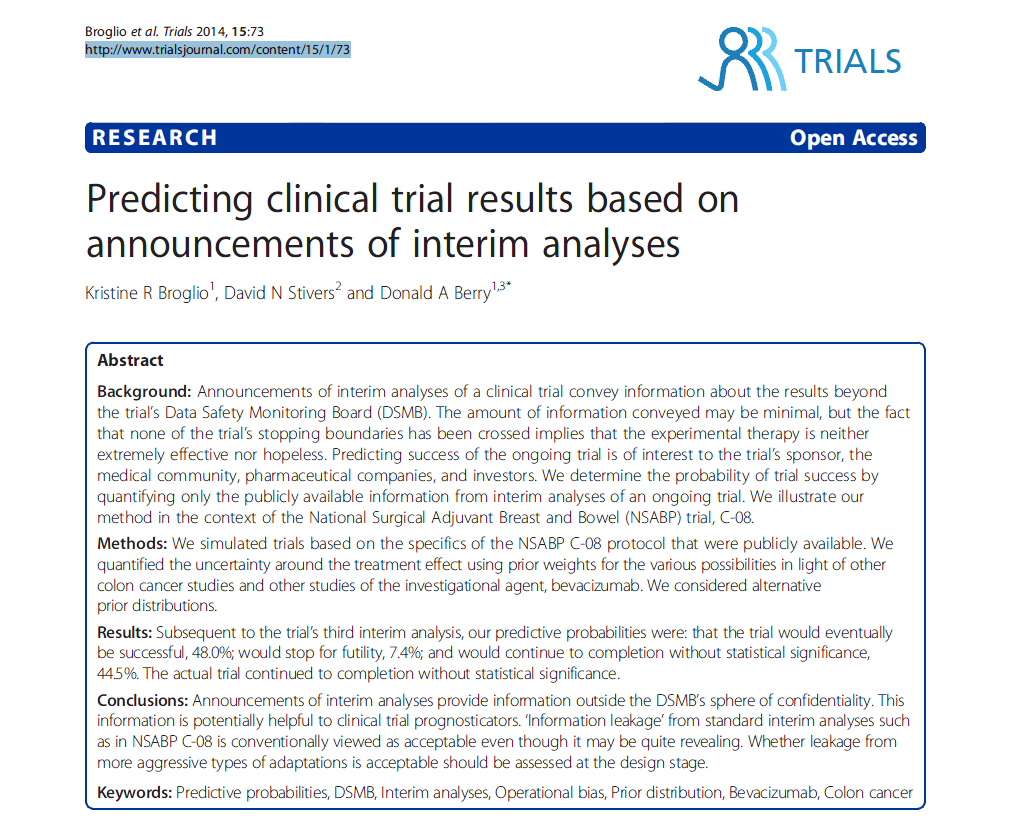If you’ve ever been involved with interim reviews of clinical trials on a DSMB (Data Safety and Monitoring Board), you will be warned about the importance of confidentiality. There are two big reasons for this. First, leaking of interim trial results could lead to insider trading. News that the trial is going well would lead to a jump in stock prices and news that the trial is going poorly would lead to a dip in stock prices. If someone gets early news from the DSMB, they could profit from that inside information.
The second reason that you need confidentiality is that the company conducting the trial might make changes to the trial based on information at the interim review. This might involve speeding up recruiting, changing the entry criteria, or other mid-stream protocol changes. These changes, if based on interim data results, could affect the operating characteristics of the study. One possibility might be an inflation of the Type I error rate.
It turns out that a DSMB does not need to release ANY information and still provide partial information about the probability of success of the clinical trial. If the DSMB recommends that a trial continue at one of its meeting, you have a bit of information, because the criteria for early stopping for futility, for example, was not met. This article talks about this and offers a real world example.
Broglio KR, Stivers DN, Berry DA. Predicting clinical trial results based on announcements of interim analyses. Trials. 2014;15(1):73. doi:10.1186/1745-6215-15-73. Available at: http://www.trialsjournal.com/content/15/1/73

You can find an earlier version of this page on my blog.